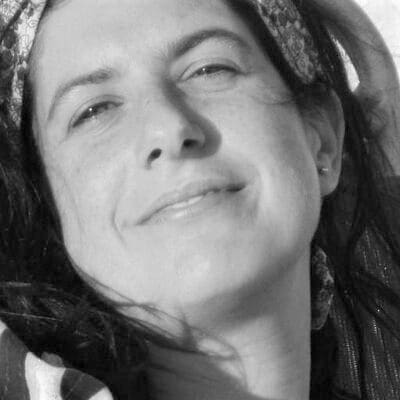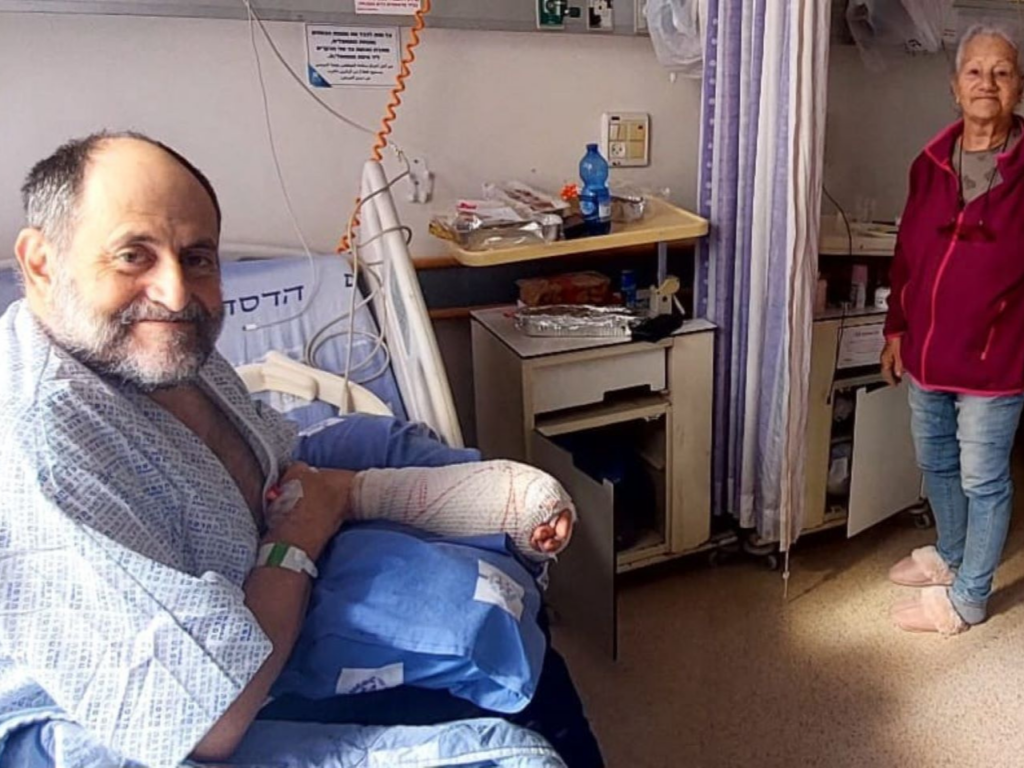72-year-old Moshe and his wife Diane taken hostage from Israel by Hamas, couple escaped at the border
When our barricade finally gave way, we faced a grim reality. Five armed Hamas members confronted us. They were visibly tense and dragged us out of our home.
- 8 months ago
November 20, 2023

NIR LEZJAK, Israel – On October 7, 2023, an urgent siren disrupted the quiet morning at our home in the kibbutz. The alarm signaled a dire threat from the nearby Gaza border. In seconds, my neighbors and I rushed to our armored security rooms, a necessary refuge in times of danger. The sight of unfamiliar figures roaming our normally tranquil streets sent shivers through me.
We heard the roar of heavy artillery and anxious Arabic voices, signaling something far worse than mere threats. We realized this was not just a simple terrorist incursion but an unprecedented full-scale invasion. Little did I know that day would lead to me fighting for my life.
Despite our best efforts to be safe, my wife and I became hostages in a situation that spiraled beyond our control. In a remarkable turn of events, we came out alive, embodying the resilience required to survive in a conflict zone. This experience marked the start of an extraordinary challenge – a stark contrast to the peace we once knew in our kibbutz.
Read more stories about the Israeli-Palestine conflict at Orato World Media
The sight of a civilian amidst five fully-equipped soldiers heightened unease, residents take shelter from conflict
When the alarms sounded that day, my wife and I, along with others, quickly sought shelter as the siege around us intensified. An hour later, local civil defense volunteers delivered chilling updates: the invasion had now engulfed neighboring villages. Realizing we might face a long entrapment, we bravely stepped out of our security room to gather necessary supplies, steeling ourselves as we faced the uncertain chaos outside.
Peering from the house, we saw uniformed troops patrolling the streets. It was a surreal experience to see foreign invaders, some dressed in Israeli uniforms, marching through the kibbutz. The sight of a civilian amidst five fully equipped soldiers heightened our unease, urging us to hurry back to the shelter.
In our refuge, a sudden, loud banging on the door snapped us to attention. We went silent, tensely listening to the sounds of forced entry and destruction in our home. Committed to protecting ourselves, we tried to hold the door shut but a barrage of bullets shattered through, injuring our hands as we strained to keep the door closed.
When our barricade finally gave way, we faced a grim reality. Five armed Hamas members confronted us. They were visibly tense and dragged us out of our home. We were injured and bleeding, and the Hamas militants quickly hid us amongst trees, likely in an attempt to evade detection by military drones and patrols.
Invaders drag us towards the Gaza border, but I refuse: “We are not going!”
When the invaders forcefully removed me and Diana from our shelter, they dragged us through the forest toward the Gaza border. Their intentions quickly became apparent: this was an abduction. My rudimentary Arabic skills helped me understand their conversations. They were desperately searching for a vehicle.
Darting from tree to tree, I watched them try and fail to hotwire several cars. Their frustration and aggression escalated with each failed attempt. Our captors hurried us along a four-kilometer trek from the kibbutz to a damaged fence. Once we emerged from the bushes into open ground, they accelerated our pace. Laden with their stolen items and dragging us along, they led us to a breach in the fence that separated our homes from the fields.
When we reached the wire fence, we found ourselves at the hole used by the Gaza militants for their assault. The terrorists moved through the opening one by one. As the fifth Hamas member prepared to cross through, he gestured for me to proceed. By this point, we were in dire straits. Diane and I were both bleeding heavily. In my blood-soaked clothing, I felt my strength waning and it felt hard to see.
The Hamas member tried forcing me through the fence and in a moment of defiance, I resisted. I showed him my wounds, emphasizing our age and our urgent need for medical care. Despite my pleas, the threat of violence loomed larger. Overwhelmed with fear and facing what seemed like certain death, I summoned the courage to refuse: “We’re not going!”
I saw my death sentence: we walked away, but militants did not fire at us
Facing our captors, my wife and I felt overwhelmed with fear and pain. I stood firm, refusing to cross into Gaza as a hostage. It felt like a death sentence but despite the odds against us, we chose to walk away from the militants. Surprisingly, they did not fire at us. Perhaps they did not want to attract the attention of the Israeli military. We started to walk faster, then broke into a run, and for some reason, our captors did not follow.
When we finally reached safety, the sight broke my heart. My kibbutz home had been destroyed: windows shattered, walls riddled with bullets, and belongings strewn about. Wandering amidst the devastation, we were acutely aware of the potential danger of encountering more Hamas militants. Many of our neighbors, scared of falling into a trap, were reluctant to open their doors. Fortunately, a familiar face recognized us and offered shelter.
Not a conventional border conflict: “left to deal with the aftermath”
For a while, we hid with our neighbors, but soon, the severity of our injuries became apparent, necessitating immediate medical attention. Fortunately, the army arrived and transported us to the hospital.
Reflecting on this incident, its place in Israeli history remains unmistakable. This was not a conventional border conflict like the Yom Kippur War, known for its heavy casualties. Instead, this was a direct confrontation between Israeli civilians and Hamas and Islamic Jihad soldiers in civilian-populated areas. The intentional harm to children and civilians signaled a methodical tactic of terror.
Replaying these events in my mind, I find them unfathomable. Now, safe from the immediate danger, we are left to deal with the aftermath. My wife tragically lost a finger, and my hand sustained such severe injuries that I required multiple surgeries. Despite the pain, our overwhelming feeling is one of gratitude for our survival, mixed with profound sorrow for those who were not as fortunate.











































































































































































































































































































































































